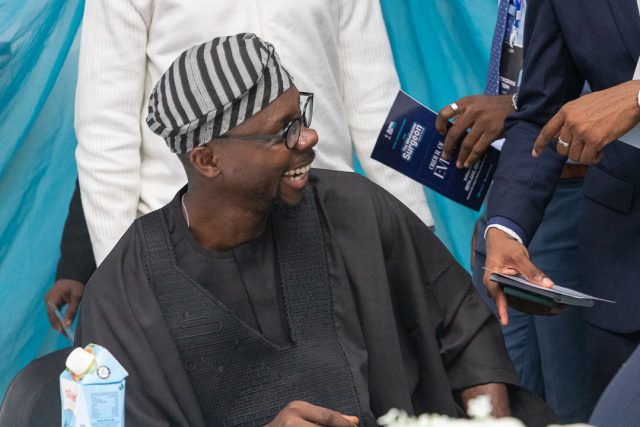Nigerian-born orthopaedic surgeon and Associate Professor of Orthopaedic Surgery at Johns Hopkins University, Dr Julius Oni, has urged aspiring surgeons to rise above mediocrity and become agents of change in the healthcare system.
Oni, who now practices in Nigeria after years of leading orthopaedic care abroad, made the call at the SURGIL 2025 Conference at the Lagos University Teaching Hospital (LUTH), with the theme, “The Wholesome Surgeon: Beyond The Operating Room.”
Addressing hundreds of aspiring surgeons, he challenged them to shift from complaints to concrete action in fixing the country’s broken healthcare system.
“I see doers, not complainers, but it starts with a decision, a decision to rise above mediocrity, a decision to stop leaving the system and instead become the system that works,” he said.
Oni, now actively contributing to orthopaedic development in Nigeria, said his return was inspired by a personal childhood experience watching his grandmother suffer without access to quality care, moment, he said, planted a lifelong seed.
“I became an orthopaedic surgeon because of my grandma that was battling debilitating knee arthritis. Now, I treat thousands of patients across three continents, Middle East, Africa, US,” he told the audience.
He stressed that Nigeria has no shortage of talent, but lacks structure and the commitment to deliver excellence consistently.
“We don’t lack intelligence. What we lack really is assistance. What we lack is sometimes the belief, and above all, Sometimes the commitment of our best selves,” he added.
Oni urged participants to envision a reformed healthcare system, one where AI-powered tools, efficient processes, and proud professionals deliver world-class care.
“You are the answer to someone’s pain, the bridge between suffering and healing, the generation that’s going to change the narrative,” he said, as he pointed to the next decade as crucial for change.
He urged young doctors not to limit themselves to passing exams or leaving the country, but to stay and transform the system from within.
“Do not just aim to pass. Aim to transform. Do not just learn. Do not just survive. Serve,” he said.
Also speaking, Consultant Urologist and Kidney Transplant Surgeon, Dr Ayo Shonibare, said the idea of a wholesome surgeon goes beyond the operating room.
“If you’re not taking care of your mental health, can you really qualify as a wholesome surgeon?” he asked.
“Being whole means taking care of your physical health, finances, family, faith, and fulfilment. Many professionals succeed in surgery but fail on the home front. That failure can completely destroy you.”
According to him, fulfillment comes from balancing self-care with service to society.
“To be a wholesome surgeon, it’s not just about what you do for yourself. It’s also what you do for others, for the bigger picture,” he added.
On his part, former Chief Medical Director of LUTH, Prof. Chris Bode, said surgeons are uniquely equipped for leadership roles beyond medicine.
“To be a good surgeon, you need to have an eye for detail and a bird’s eye view of everything around you,” he said.







